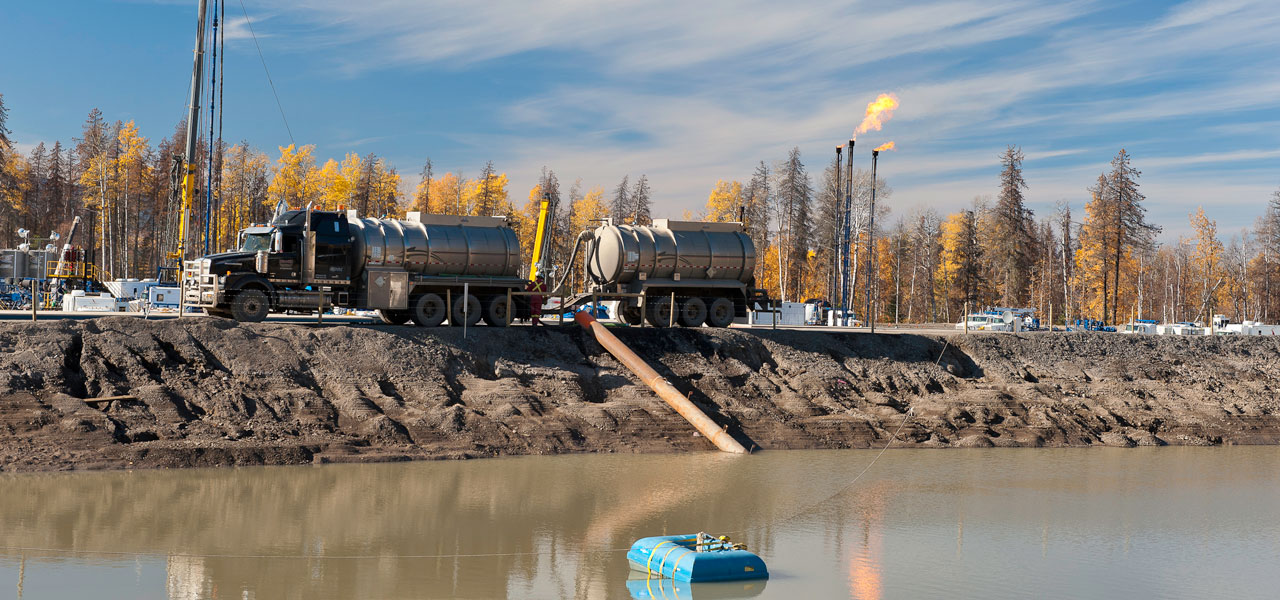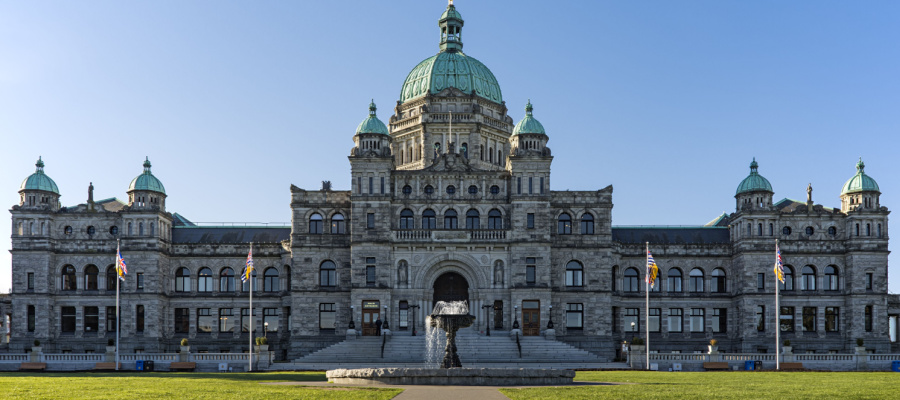Why austerity is a problem for just transition and climate action
Last year we launched the Corporate Mapping Project, which is investigating the power and influence of the fossil fuel industry in Western Canada. One of the first things we did was hold a series of community meetings with environmental, Indigenous and labour groups to discuss the project. We did this in each of the three main fossil-fuel producing Western provinces – BC, Alberta and Saskatchewan.
One of the most striking things about those meetings, particularly in Saskatoon and Edmonton, was the pervasive sense of unease and frustration people felt about trying to challenge the fossil fuel industry’s role. Even the act of questioning our economic reliance on oil, gas and coal extraction was viewed as tantamount to threatening peoples’ livelihoods and the wellbeing of their communities.
Yet here we were meeting at the tail end of 2015, when oil prices had reached their lowest point in decades and the price collapse was leading to massive layoffs and dislocation in Canada’s oil economy, and in the economies of Alberta, Saskatchewan and Newfoundland in particular.
Now – you’d *think* that this would create an opening to talk about the need for climate action, for the shift away from fossil fuels – particularly in resource-dependent regions. After all, the market is forcing people through a very unjust transition: the oil price collapse has been a rather brutal reminder of the inherent riskiness of Canada’s export-driven commodity sectors.
The market is forcing people through a very unjust transition: the oil price collapse has been a rather brutal reminder of the inherent riskiness of Canada’s export-driven commodity sectors.
But the opening this has created for public discussion of a planned shift away from the extractive economy has been surprisingly small. And if anything, I’d say it’s become even harder.
Governments in Western Canada and federally have — with the rather notable exception of Saskatchewan premier Brad Wall — espoused climate-oriented policies to varying degrees. But they’ve done so while simultaneously doubling down on the push for more oil and gas production, and more export infrastructure such as LNG terminals and bitumen pipelines, as the answer to our economic woes.
The tensions around these issues have sharpened, with the jobs versus environment frame seemingly more powerful than ever – including among progressives, as we saw recently with the LEAP Manifesto acting as a lightening rod for that frame.
Hence even talking about the imperative to make a shift away from using and extracting fossil fuels risks being portrayed as an attack on extractive sector workers and communities.
Something that both industry and government know all too well.
For much of the last eight years, I have worked on climate communication and transition issues – including with energy sector workers about the challenges they face with transition. So this puzzle has really bothered me.
On reflection, I think one of the explanations is the role that austerity plays in limiting our capacity to deal with societal problems – both as an ideological component of neoliberalism and as a policy framework with material consequences. In other words, as a conditioning framework. I wouldn’t suggest that this is the only explanation of course – but I believe it’s an important one.
First, there is the role austerity plays, in conjunction with the commodity roller coaster, in creating a state of structural insecurity that has a particular character for resource sectors and resource-dependent communities.
As a fiscal restraint, austerity leads to shrinking public goods and government capacity. It erodes the social safety net.
In smaller communities, the public sector is often the number one or two employer – so cuts to public services loom large for people in regions where the economy is less diversified than in large urban centres.
In BC, during the period of slash-and-burn reductions in public spending in the early 2000s, smaller communities bore the brunt of the cuts. Regions outside Greater Vancouver and Victoria faced a 22% reduction in the number of direct public sector employees in just three years (2001 to 2004). This compared to a 14% decline for the Vancouver and Victoria areas combined.
Indeed, the trendline for BC provincial government spending as a share of total economic pie (GDP) since 2000 is decidedly downward. As has been the case since the mid-90s federally and in Alberta, and more recently under Brad Wall’s government in Saskatchewan.
This has happened alongside labour market reforms like the restructuring of employment insurance. With the result that life has, in many respects, become far less secure. Even as the recent commodity boom was in full swing.
Even talking about the imperative to make a shift away from using and extracting fossil fuels risks being portrayed as an attack on extractive sector workers and communities.
Austerity and the commodity roller coaster together create an environment of permanent uncertainty, which in turn makes people risk averse, and understandably so. In times of uncertainty, it is easier to stick with what we know.
A recovery that people can imagine as being just over the horizon is easier to bet on than this rather more fuzzy, unfamiliar, difficult to imagine, longer-term green transformation we keep talking about.
This brings us to the second problem with austerity, which is that shifting off fossil fuels by mid-century is not — as the CCPA through our Climate Justice Project has shown — impossible. But it will take tremendous ambition and active leadership by governments, and it will take substantial new investments in green and social infrastructure. There is no way around that, if the transition is going to be a good one that reduces inequality, and improves peoples’ quality of life.
Yet austerity makes such a thing unimaginable. Even at a time when it should be easier to say yes to alternatives to fossil fuel industries. Because, as an activist at a recent meeting we hosted pointed out: austerity is a culture of ‘no.’
Austerity is also part of neoliberalism’s culture of mistrust in government. One that says governments are wasteful, inefficient, and not to be trusted to have our backs. As happened over and over in BC, for example, when the bottom fell out of the forest industry in the 1990s and 2000s. Recent provincial governments have piled on by relaxing tenure rules and increasing raw log exports, while largely failing to take an active role on the solutions side – and while the mountain pine beetle, BC’s first climate disaster, ravaged our interior forests.
Calls to support a renewed value-added industry, regulate wood waste, invest in much greater reforestation practices, and provide greater supports to communities in crisis were largely ignored.
A few years back, I interviewed energy sector workers about climate change and the idea of just ‘transition.’ It was the government’s ‘no’ to any kind of just transition in forestry that reinforced their general sentiment that, while just transition policies as a basis for shifting off fossil fuels are a nice idea in principle, they will never actually happen. No government they could imagine would ever take such action, or prioritize the needs of rural and resource dependent communities in such a way.
Not only does austerity make the scale of investment and government action that the climate crisis calls for unimaginable. As a fiscal framework, it also makes it impossible.
Large-scale investments in transit, building retrofits, renewable energy, affordable housing, retrofitting the development patterns of the suburbs and rural regions, funding transition and training programs for extractive sector workers – to name just a few of the areas where action is needed — these are all jobs for governments to lead, and they all require major up-front investment of public funds.
This is the evil genius of neoliberalism and austerity in fact – years of pitched arguments from the right that government is wasteful and bloated, combined with ongoing declines in government spending and public services — makes us averse to government as a means of solving societal problems.
Which in turn makes societal problems – like climate change, and the commodity roller coaster – all the more intractable.
In this way, austerity acts as a material and ideological straightjacket, explaining to at least some extent why the oil price collapse has not allowed for more room to build support for transition to a stable, diversified and green economy.
I don’t mean to suggest that there’s no way out. But we must keep having the conversation, and there are significant implications for the environmental movement in particular. In terms of the kinds of policies key parts of the movement advance (ex, the over-focus on market mechanisms like carbon pricing), what they consider to be their legitimate realm (such as needing to make progressive fiscal policy part of their core focus) and the opportunities for finding greater common cause with social justice and labour movements.
—
Shannon Daub co-directs the Corporate Mapping Project, which is jointly led by the University of Victoria, Canadian Centre for Policy Alternatives and the Parkland Institute. This research is supported by the Social Sciences and Humanities Research Council of Canada.
Topics: Climate change & energy policy, Economy, Features






